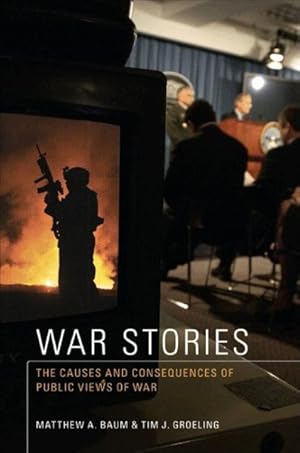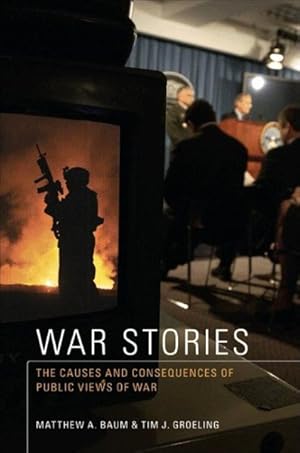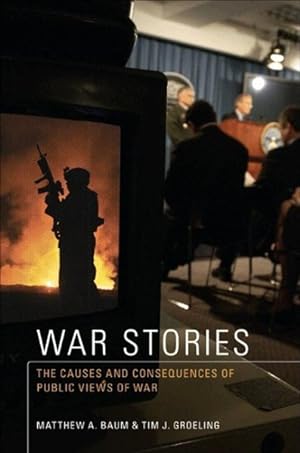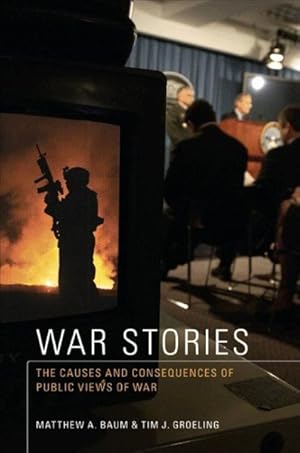baum matthew groeling tim (17 Ergebnisse)
Suchfilter
Produktart
- Alle Product Types
- Bücher (17)
- Magazine & Zeitschriften (Keine weiteren Ergebnisse entsprechen dieser Verfeinerung)
- Comics (Keine weiteren Ergebnisse entsprechen dieser Verfeinerung)
- Noten (Keine weiteren Ergebnisse entsprechen dieser Verfeinerung)
- Kunst, Grafik & Poster (Keine weiteren Ergebnisse entsprechen dieser Verfeinerung)
- Fotografien (Keine weiteren Ergebnisse entsprechen dieser Verfeinerung)
- Karten (Keine weiteren Ergebnisse entsprechen dieser Verfeinerung)
- Manuskripte & Papierantiquitäten (Keine weiteren Ergebnisse entsprechen dieser Verfeinerung)
Zustand Mehr dazu
- Neu (9)
- Wie Neu, Sehr Gut oder Gut Bis Sehr Gut (3)
- Gut oder Befriedigend (5)
- Ausreichend oder Schlecht (Keine weiteren Ergebnisse entsprechen dieser Verfeinerung)
- Wie beschrieben (Keine weiteren Ergebnisse entsprechen dieser Verfeinerung)
Einband
- alle Einbände
- Hardcover (Keine weiteren Ergebnisse entsprechen dieser Verfeinerung)
- Softcover (17)
Weitere Eigenschaften
- Erstausgabe (Keine weiteren Ergebnisse entsprechen dieser Verfeinerung)
- Signiert (Keine weiteren Ergebnisse entsprechen dieser Verfeinerung)
- Schutzumschlag (Keine weiteren Ergebnisse entsprechen dieser Verfeinerung)
- Angebotsfoto (9)
- Keine Print-on-Demand Angebote (17)
Sprache (1)
Gratisversand
Land des Verkäufers
Verkäuferbewertung
-
War Stories: The Causes and Consequences of Public Views of War
Verlag: Princeton University Press, 2010
ISBN 10: 0691138591 ISBN 13: 9780691138596
Sprache: Englisch
EUR 5,30
Währung umrechnenKostenlos für den Versand innerhalb von/der USAAnzahl: 1 verfügbar
In den WarenkorbZustand: Very Good. Very Good condition. A copy that may have a few cosmetic defects. May also contain light spine creasing or a few markings such as an owner's name, short gifter's inscription or light stamp.
-
War Stories : The Causes and Consequences of Public Views of War
Verlag: Princeton University Press, 2010
ISBN 10: 0691138591 ISBN 13: 9780691138596
Sprache: Englisch
Anbieter: Better World Books, Mishawaka, IN, USA
EUR 5,87
Währung umrechnenKostenlos für den Versand innerhalb von/der USAAnzahl: 1 verfügbar
In den WarenkorbZustand: Very Good. Used book that is in excellent condition. May show signs of wear or have minor defects.
-
War Stories : The Causes and Consequences of Public Views of War
Verlag: Princeton University Press, 2010
ISBN 10: 0691138591 ISBN 13: 9780691138596
Sprache: Englisch
Anbieter: Better World Books: West, Reno, NV, USA
EUR 5,87
Währung umrechnenKostenlos für den Versand innerhalb von/der USAAnzahl: 1 verfügbar
In den WarenkorbZustand: Good. Used book that is in clean, average condition without any missing pages.
-
War Stories: The Causes and Consequences of Public Views of War
Verlag: Princeton University Press, 2010
ISBN 10: 0691138591 ISBN 13: 9780691138596
Sprache: Englisch
Anbieter: ThriftBooks-Atlanta, AUSTELL, GA, USA
EUR 6,79
Währung umrechnenKostenlos für den Versand innerhalb von/der USAAnzahl: 1 verfügbar
In den WarenkorbPaperback. Zustand: Very Good. No Jacket. May have limited writing in cover pages. Pages are unmarked. ~ ThriftBooks: Read More, Spend Less 1.14.
-
War Stories : The Causes and Consequences of Public Views of War
Verlag: Princeton University Press, 2010
ISBN 10: 0691138591 ISBN 13: 9780691138596
Sprache: Englisch
Anbieter: Better World Books Ltd, Dunfermline, Vereinigtes Königreich
EUR 6,10
Währung umrechnenEUR 9,16 für den Versand von Vereinigtes Königreich nach USAAnzahl: 1 verfügbar
In den WarenkorbZustand: Good. Ships from the UK. Former library book; may include library markings. Used book that is in clean, average condition without any missing pages.
-
War Stories : The Causes and Consequences of Public Views of War
Verlag: Princeton University Press, 2010
ISBN 10: 0691138591 ISBN 13: 9780691138596
Sprache: Englisch
Anbieter: GreatBookPrices, Columbia, MD, USA
EUR 36,33
Währung umrechnenEUR 2,27 für den Versand innerhalb von/der USAAnzahl: 2 verfügbar
In den WarenkorbZustand: New.
-
War Stories : The Causes and Consequences of Public Views of War
Verlag: Princeton University Press, 2010
ISBN 10: 0691138591 ISBN 13: 9780691138596
Sprache: Englisch
Anbieter: GreatBookPrices, Columbia, MD, USA
EUR 40,44
Währung umrechnenEUR 2,27 für den Versand innerhalb von/der USAAnzahl: 2 verfügbar
In den WarenkorbZustand: As New. Unread book in perfect condition.
-
War Stories The Causes and Consequences of Public Views of War Format: Paperback
Verlag: Princeton University Press, 2010
ISBN 10: 0691138591 ISBN 13: 9780691138596
Sprache: Englisch
Anbieter: INDOO, Avenel, NJ, USA
EUR 42,78
Währung umrechnenKostenlos für den Versand innerhalb von/der USAAnzahl: 13 verfügbar
In den WarenkorbZustand: As New. Unread copy in mint condition.
-
War Stories The Causes and Consequences of Public Views of War Format: Paperback
Verlag: Princeton University Press, 2010
ISBN 10: 0691138591 ISBN 13: 9780691138596
Sprache: Englisch
Anbieter: INDOO, Avenel, NJ, USA
EUR 42,88
Währung umrechnenKostenlos für den Versand innerhalb von/der USAAnzahl: 13 verfügbar
In den WarenkorbZustand: New. Brand New.
-
War Stories
Verlag: Princeton University Press, US, 2010
ISBN 10: 0691138591 ISBN 13: 9780691138596
Sprache: Englisch
Anbieter: Rarewaves.com USA, London, LONDO, Vereinigtes Königreich
EUR 49,99
Währung umrechnenKostenlos für den Versand von Vereinigtes Königreich nach USAAnzahl: 1 verfügbar
In den WarenkorbPaperback. Zustand: New. How does the American public formulate its opinions about U.S. foreign policy and military engagement abroad? War Stories argues that the media systematically distort the information the public vitally needs to determine whether to support such initiatives, for reasons having more to do with journalists' professional interests than the merits of the policies, and that this has significant consequences for national security. Matthew Baum and Tim Groeling develop a "strategic bias" theory that explains the foreign-policy communication process as a three-way interaction among the press, political elites, and the public, each of which has distinct interests, biases, and incentives. Do media representations affect public support for the president and faithfully reflect events in times of diplomatic crisis and war? How do new media--especially Internet news and more partisan outlets--shape public opinion, and how will they alter future conflicts? In answering such questions, Baum and Groeling take an in-depth look at media coverage, elite rhetoric, and public opinion during the Iraq war and other U.S. conflicts abroad.They trace how traditional and new media select stories, how elites frame and sometimes even distort events, and how these dynamics shape public opinion over the course of a conflict. Most of us learn virtually everything we know about foreign policy from media reporting of elite opinions. In War Stories, Baum and Groeling reveal precisely what this means for the future of American foreign policy.
-
War Stories
Verlag: Princeton University Press, US, 2010
ISBN 10: 0691138591 ISBN 13: 9780691138596
Sprache: Englisch
Anbieter: Rarewaves USA, OSWEGO, IL, USA
EUR 53,56
Währung umrechnenKostenlos für den Versand innerhalb von/der USAAnzahl: 7 verfügbar
In den WarenkorbPaperback. Zustand: New. How does the American public formulate its opinions about U.S. foreign policy and military engagement abroad? War Stories argues that the media systematically distort the information the public vitally needs to determine whether to support such initiatives, for reasons having more to do with journalists' professional interests than the merits of the policies, and that this has significant consequences for national security. Matthew Baum and Tim Groeling develop a "strategic bias" theory that explains the foreign-policy communication process as a three-way interaction among the press, political elites, and the public, each of which has distinct interests, biases, and incentives. Do media representations affect public support for the president and faithfully reflect events in times of diplomatic crisis and war? How do new media--especially Internet news and more partisan outlets--shape public opinion, and how will they alter future conflicts? In answering such questions, Baum and Groeling take an in-depth look at media coverage, elite rhetoric, and public opinion during the Iraq war and other U.S. conflicts abroad.They trace how traditional and new media select stories, how elites frame and sometimes even distort events, and how these dynamics shape public opinion over the course of a conflict. Most of us learn virtually everything we know about foreign policy from media reporting of elite opinions. In War Stories, Baum and Groeling reveal precisely what this means for the future of American foreign policy.
-
War Stories: The Causes and Consequences of Public Views of War
Verlag: Princeton University Press, 2010
ISBN 10: 0691138591 ISBN 13: 9780691138596
Sprache: Englisch
Anbieter: Ria Christie Collections, Uxbridge, Vereinigtes Königreich
EUR 44,09
Währung umrechnenEUR 13,72 für den Versand von Vereinigtes Königreich nach USAAnzahl: 2 verfügbar
In den WarenkorbZustand: New. In.
-
War Stories : The Causes and Consequences of Public Views of War
Verlag: Princeton University Press, 2010
ISBN 10: 0691138591 ISBN 13: 9780691138596
Sprache: Englisch
Anbieter: GreatBookPricesUK, Woodford Green, Vereinigtes Königreich
EUR 41,39
Währung umrechnenEUR 17,18 für den Versand von Vereinigtes Königreich nach USAAnzahl: 2 verfügbar
In den WarenkorbZustand: New.
-
War Stories : The Causes and Consequences of Public Views of War
Verlag: Princeton University Press, 2010
ISBN 10: 0691138591 ISBN 13: 9780691138596
Sprache: Englisch
Anbieter: GreatBookPricesUK, Woodford Green, Vereinigtes Königreich
EUR 41,69
Währung umrechnenEUR 17,18 für den Versand von Vereinigtes Königreich nach USAAnzahl: 2 verfügbar
In den WarenkorbZustand: As New. Unread book in perfect condition.
-
War Stories: The Causes and Consequences of Public Views of War
Anbieter: moluna, Greven, Deutschland
EUR 41,88
Währung umrechnenEUR 48,99 für den Versand von Deutschland nach USAAnzahl: 2 verfügbar
In den WarenkorbKartoniert / Broschiert. Zustand: New. How does the American public formulate its opinions about US foreign policy and military engagement abroad? This title takes an in-depth look at media coverage, elite rhetoric, and public opinion during the Iraq war and other US conflicts abroad. It also re.
-
War Stories
Verlag: Princeton University Press, US, 2010
ISBN 10: 0691138591 ISBN 13: 9780691138596
Sprache: Englisch
Anbieter: Rarewaves USA United, OSWEGO, IL, USA
EUR 55,35
Währung umrechnenEUR 42,91 für den Versand innerhalb von/der USAAnzahl: 7 verfügbar
In den WarenkorbPaperback. Zustand: New. How does the American public formulate its opinions about U.S. foreign policy and military engagement abroad? War Stories argues that the media systematically distort the information the public vitally needs to determine whether to support such initiatives, for reasons having more to do with journalists' professional interests than the merits of the policies, and that this has significant consequences for national security. Matthew Baum and Tim Groeling develop a "strategic bias" theory that explains the foreign-policy communication process as a three-way interaction among the press, political elites, and the public, each of which has distinct interests, biases, and incentives. Do media representations affect public support for the president and faithfully reflect events in times of diplomatic crisis and war? How do new media--especially Internet news and more partisan outlets--shape public opinion, and how will they alter future conflicts? In answering such questions, Baum and Groeling take an in-depth look at media coverage, elite rhetoric, and public opinion during the Iraq war and other U.S. conflicts abroad.They trace how traditional and new media select stories, how elites frame and sometimes even distort events, and how these dynamics shape public opinion over the course of a conflict. Most of us learn virtually everything we know about foreign policy from media reporting of elite opinions. In War Stories, Baum and Groeling reveal precisely what this means for the future of American foreign policy.
-
War Stories
Verlag: Princeton University Press, US, 2010
ISBN 10: 0691138591 ISBN 13: 9780691138596
Sprache: Englisch
Anbieter: Rarewaves.com UK, London, Vereinigtes Königreich
EUR 45,82
Währung umrechnenEUR 74,43 für den Versand von Vereinigtes Königreich nach USAAnzahl: 1 verfügbar
In den WarenkorbPaperback. Zustand: New. How does the American public formulate its opinions about U.S. foreign policy and military engagement abroad? War Stories argues that the media systematically distort the information the public vitally needs to determine whether to support such initiatives, for reasons having more to do with journalists' professional interests than the merits of the policies, and that this has significant consequences for national security. Matthew Baum and Tim Groeling develop a "strategic bias" theory that explains the foreign-policy communication process as a three-way interaction among the press, political elites, and the public, each of which has distinct interests, biases, and incentives. Do media representations affect public support for the president and faithfully reflect events in times of diplomatic crisis and war? How do new media--especially Internet news and more partisan outlets--shape public opinion, and how will they alter future conflicts? In answering such questions, Baum and Groeling take an in-depth look at media coverage, elite rhetoric, and public opinion during the Iraq war and other U.S. conflicts abroad.They trace how traditional and new media select stories, how elites frame and sometimes even distort events, and how these dynamics shape public opinion over the course of a conflict. Most of us learn virtually everything we know about foreign policy from media reporting of elite opinions. In War Stories, Baum and Groeling reveal precisely what this means for the future of American foreign policy.











